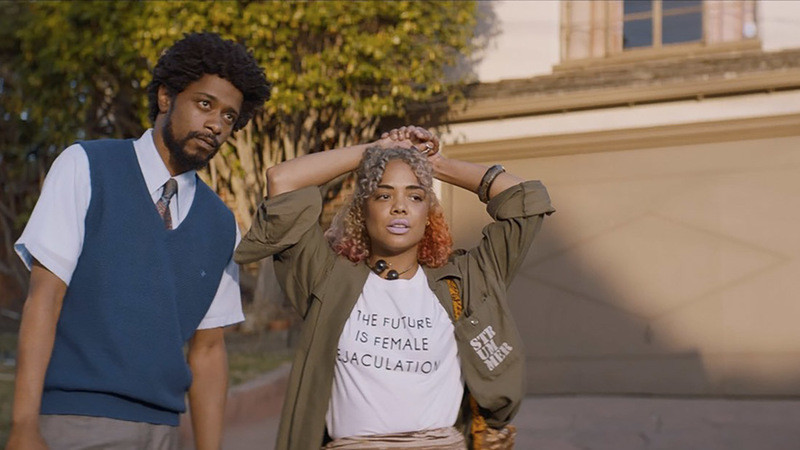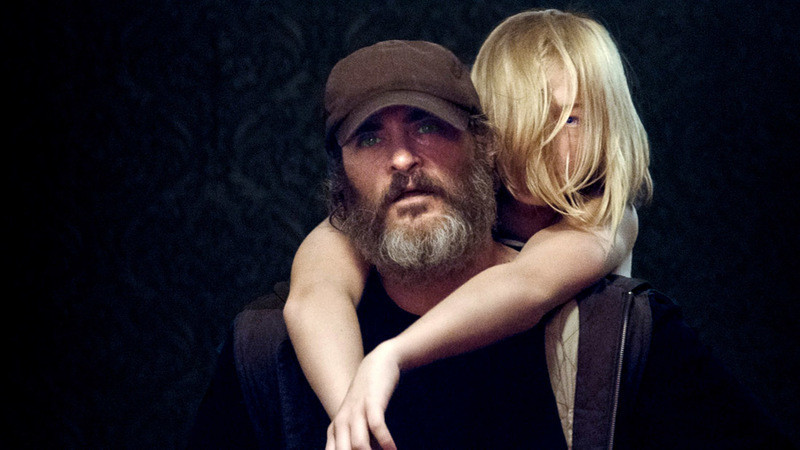Thumbnails is a roundup of brief excerpts to introduce you to articles from other websites that we found interesting and informative. We provide links to the original sources for you to read in their entirety. This special edition features coverage of the 2018 Sundance Film Festival.
1.
“As fest jurors, Chaz Ebert, Chris Ware bring Chicago points of view to Sundance“: As reported by Max Asaf of The Chicago Sun-Times.
“First introduced to Sundance by her late husband, Sun-Times film critic Roger Ebert, Chaz Ebert has forged her own partnerships with the festival. ‘Sundance and I have the same goal of increasing access to artists and building a more inclusive, independent and compassionate society,’ Ebert said. In June 2013, just two months after Roger Ebert’s passing, Robert Redford, Sundance’s founder and executive director, reached out to Chaz Ebert about starting a fellowship in Roger’s name. Out of that, the Ebert Sundance Fellowship was born, naturally in support of emerging and diverse voices in film criticism but open to aspiring critics, writers, and filmmakers alike. This year, Ebert and her team decided that, out of over 300 applications, they would choose three African-American males, a group she feels has been historically excluded from mentorship opportunities in the arts. One of the three fellows is a Chicago native, filmmaker Brandon Towns, whom Ebert met through Columbia College’s now-defunct Links journalism program. ‘I’ve followed his career a little bit,’ said Ebert about Towns, ‘and I thought this would be a good environment for him because he’s primarily interested in filmmaking, and he loves storytelling.’ She hopes that Towns and the other two fellows, Jomo Fray and Garry Wilkerson Jr., will come away from the experience with a better understanding of the need to filter their writing and filmmaking through the values of empathy, kindness, compassion, and forgiveness.”
2.

“Sorry to Bother You“: Brian Tallerico says that Lakeith Stanfield delivers his best performance to date in Boots Riley’s Sundance hit.
“’Sorry to Bother You’ is a visual feast as Riley balances the relatable human story at the center with unforgettable, daring imagery. It could be something as simple as the way he portrays Cassius and Detroit’s financial rise (their garage room literally deconstructs and reforming into a fancier one) or the almost Terry Gilliam-esque approach to a world not exactly ours but not far off that defines the entire film. Like Gilliam or Gondry, Riley is constantly drawing attention to his choices through their extremity. For example, rather than have Stanfield attempt the job-changing ‘white voice,’ he literally dubs him, and others, with pretty famous actors that most people will recognize instantly, amplifying the disconnect and ridiculousness of it all. Like a lot of great satire, Riley turns most of his choices up to 11. You go all in, or you don’t go at all. And it’s that riskiness that feels so refreshing and ambitious. But a movie doesn’t work, even a satire, if we don’t have anything human to hold onto, and so Riley’s smartest decision was to use the blinding likability of Stanfield and Thompson to ground the film’s more out-there elements. Stanfield always feels like he’s playing the truth of the moment, even when it’s broad satire, and Thompson is as likable as she’s ever been. The film also deserves notable praise for its tech elements, including a soundtrack by Riley and the Tune-Yards, vibrant production design, and some of the best costumes I’ve seen at Sundance—Detroit’s artistic sensibilities inform her fashion, especially her unforgettable homemade earrings in such a memorable way that they could actually spark a line of film-related products.”
3.

“‘306 Hollywood,’ ‘Our New President’“: Nick Allen reviews two buzzed-about documentaries at Sundance.
“The key word to the documentary ‘Our New President’ is the first one, ‘Our.’ In the mind of Russian filmmaker Maxim Pozdorovkin, the president is not just America’s in this case, but that of Russia, if not more so. His documentary is a like a nervous video essay comprised strictly of Russian media images, related to Trump and the biased media seen widely throughout Russia. Pozdorovkin uses the footage to create a horrifying mirror, showing us that things are much worse and not as different as we may think. Expanding upon his short (which you can now view on Vimeo to get a feel), he makes it about the type of media industry values that created the ideas and popularity of a Trump. In the case of Russia, it’s government-run media like the global RT (Russia Today), in which one of the key news figureheads says its ‘propaganda of common sense,’ while leading various segments that are edited like action movies and often sing a song of fear. The main headlines are familiar to the crackpot Facebook posts we all saw in 2016 and earlier: Hillary Clinton is the enemy, and the conspiracy theories brought up against her are no different than ones that got traction from Americans—about Clinton supposedly having failing health, the idea of Bill Clinton and a pedophile sex ring, the various people who must’ve been killed by the DNC, etc. The key to this movie is that while it goes deep into the archives to create an abrasive video essay, the movie is not a conspiracy theory itself. The images of flashy biased news speaks for itself, especially within the context of Russian news progressively losing its independence. While the movie is not about information first, it does offer a disturbing glimpse into how a government could destroy free speech and control the message of the media. Bonded with the footage that Pozdorovkin collects, it is not fake facts.”
4.

“‘Loveling,’ ‘Pity,’ ‘The Guilty’“: Tomris Laffly reviews three films in Sundance’s World Cinema program.
“Gustavo Pizzi’s ‘Loveling’ (from Brazil/Uruguay) follows Irene (Karine Telles), a married mother of four living in an unkempt, decaying house outside of Rio de Janeiro. By all measures, she leads a joyous, happy life surrounded by the spraying taps and crumbling walls of her hectic, colorful house that seems to be bursting at its seams. Despite the chaotic mess around her however, the details of her life warmly add up to a close-knit and amorous co-existence with her beloved family. But when Irene’s oldest son Fernando, a gifted local handball player, gets recruited by a professional team in Germany, her life turns upside down as she prepares for Fernando’s fast-approaching departure in three weeks time. Fretful and vulnerable during this time crunch, Irene worries about her son’s future and her own aimless prospects after her son’s impending journey. Also a co-writer of the film alongside Pizzi, Telles brings the sweet-natured Irene to life with an organic sense of realism and charts her journey of mid-life reinvention—as she earns her high-school diploma, reevaluates her family’s living arrangements and protects her sister from an abusive husband along the way—with superior attention. Elevated by rich, Pedro Almodovar-esque colors and an elaborately-conceived set design, Pizzi’s film loosely brings to mind ‘My Happy Family’ (Nana & Simon) from last year’s Sundance in its study of an unconventional, frenzied family life against the backdrop of a culture, and a defiant female navigating various dynamics while seeking her own voice. The comparatively naturalistic ‘Loveling’ doesn’t quite grab the viewer as intimately and in much detail as ‘My Happy Family’—its free-flowing rhythm renders a more intricate exploration of Irene, and her newfound appetite for a different kind of existence, unviable. Yet, the bigger picture still manages to paint an unruly, idiosyncratic collective with tender devotion.”
5.

“You Were Never Really Here“: Brian Tallerico reviews Lynne Ramsay’s long-awaited thriller starring Joaquin Phoenix.
“There are many things to praise about Ramsay’s vision here, but one thing that particularly stands out is her lack of desire to narratively hold anyone’s hand. “You Were Never Really Here” very rarely stops to catch you up on what’s happening, or spell anything out to you thematically. You have to be willing to suspend traditional narrative expectations to appreciate what is almost a dreamlike journey to the dark side. It is a film of such striking, unforgettable imagery, and yet Phoenix’s performance grounds it in such a way that it never becomes a hollow exercise in style. Bulked up in muscle and weight, Phoenix almost appears as if he’s in physical pain throughout much of the film, capturing a man for whom the world has become too bright, too loud, too awful, without overplaying those beats. It’s a film of external beauty in Ramsay’s visual language and sound design but it’s anchored by the internal work of her leading man. It’s that balance, the teamwork between Ramsay and Phoenix, that makes “You Were Never Really Here” so unforgettable, and what will make it a cult hit when it’s released in a few months. In many ways, it already feels like it is. For a lot of you, it’s your new favorite movie in a long time—you just don’t know it yet. ”
Image of the Day

Ebert Fellow Jomo Fray holds the Special Jury Prize awarded at Sundance to Carey Williams’ short film, “Emergency,” for which Fray served as a cinematographer. “The film is basically about three men of color who return home and are thrown into a compromising situation, and have to decide whether or not to call the police,” said Fray. “In film school, we were told to ‘show, not tell,’ but something that is super-important for me in my own work is to move past that and ‘feel, not show.’ I want the audience to feel what the characters are going through.” Click here to read about all three this year’s Ebert Fellows, which also include Brandon Towns and Gary Wilkerson, Jr.
Video of the Day
<span id=”selection-marker-1″ class=”redactor-selection-marker”></span>
This footage of Roger Ebert defending Justin Lin’s 2002 film, “Better Luck Tomorrow,” is one of Chaz Ebert’s favorite memories from Sundance, illustrating her husband’s passion for championing diverse voices. Click here to read Roger’s four-star review of the film.












